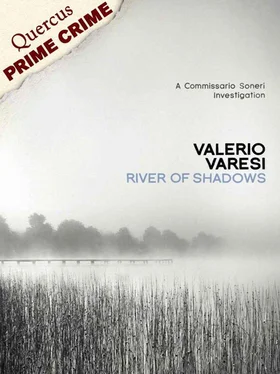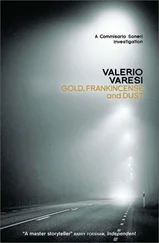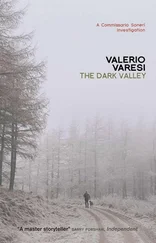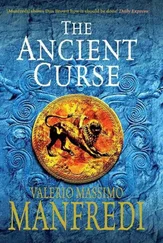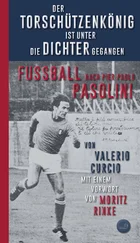Valerio Varesi - River of Shadows
Здесь есть возможность читать онлайн «Valerio Varesi - River of Shadows» весь текст электронной книги совершенно бесплатно (целиком полную версию без сокращений). В некоторых случаях можно слушать аудио, скачать через торрент в формате fb2 и присутствует краткое содержание. Жанр: Полицейский детектив, на английском языке. Описание произведения, (предисловие) а так же отзывы посетителей доступны на портале библиотеки ЛибКат.
- Название:River of Shadows
- Автор:
- Жанр:
- Год:неизвестен
- ISBN:нет данных
- Рейтинг книги:5 / 5. Голосов: 1
-
Избранное:Добавить в избранное
- Отзывы:
-
Ваша оценка:
- 100
- 1
- 2
- 3
- 4
- 5
River of Shadows: краткое содержание, описание и аннотация
Предлагаем к чтению аннотацию, описание, краткое содержание или предисловие (зависит от того, что написал сам автор книги «River of Shadows»). Если вы не нашли необходимую информацию о книге — напишите в комментариях, мы постараемся отыскать её.
River of Shadows — читать онлайн бесплатно полную книгу (весь текст) целиком
Ниже представлен текст книги, разбитый по страницам. Система сохранения места последней прочитанной страницы, позволяет с удобством читать онлайн бесплатно книгу «River of Shadows», без необходимости каждый раз заново искать на чём Вы остановились. Поставьте закладку, и сможете в любой момент перейти на страницу, на которой закончили чтение.
Интервал:
Закладка:
“This is something new,” said the man who was working the radio. “It’s caught them all on the hop.”
“Are there still many who make their living sailing up and down the river?” the commissario said.
“Agh!” Barigazzi exclaimed, with a gesture that indicated deep anger. “Two men and a dog. Nobody invests in boats nowadays and you’ve seen the state of the moorings.”
“But Tonna apparently wouldn’t give up, in spite of his age.”
“It was his life,” the old man said, a bit irritated by the question. “Do you expect a man to change his vices at eighty?”
“Many men opt for a quiet life at that age.”
“Not Tonna. He never entertained the notion of leaving his barge and digging a garden. And anyway, he always wanted to stay away from people and their empty chatter.”
“Any unfinished business?”
Barigazzi made a vague gesture. “He liked his own company…” he said in a tone which seemed to the commissario intended to convey some deeper meaning.
“Even when he was sailing?”
“Sometimes he took his nephew along, but he didn’t manage to make a riverman of him. The young nowadays like their comforts, and the river makes its demands.”
Soneri thought of Tonna and his solitary life, dedicated to commuting endlessly between Pavia and the mouth of the river, his two termini. A riverman who had no liking for company or for dry land. So caught up was he in these thoughts, he failed to notice that it had stopped raining.
Barigazzi lifted his head as a sign of gratitude. “Don Firmino got it right for once. San Donino has bestowed his grace on us,” he sniggered.
At that very moment, the lamp over the boat club, three metres above the roof, was switched on. The water, in gently rippling waves, continued to rise over the yard and was now scarcely two metres from the entrance.
“You arrive when everyone else is getting out,” Barigazzi said.
“It’s my job.”
The man gave a slight nod to show he understood. “Anyway, there is no danger. Every so often the river comes along to take back what is his, and we let him get on with it. He doesn’t keep it long. The Po always restores everything.”
“Including the dead?”
Barigazzi looked him over attentively. “Even the dead,” he agreed. “If you are referring to what I think you are, you can be sure he’ll turn up. But are you really sure the Po has taken him?”
The commissario thought it over for a while before replying. “No,” he said with resignation, telling himself that the investigation was still to get under way. “Can I offer you a drink?” he proposed to the old man.
“I’d be very grateful, in a little while,” Barigazzi said. “First we have to shift the radio. We’ll take it to the Town Hall. That way the mayor will be able to listen for himself.”
“Where’s the best place for a drink?”
“Depends on your tastes,” the old man said. “I prefer Il Sordo, run by the deaf barman, under the colonnades, but they’ve got good wine in the Italia, where you’ll have been already.”
Soneri was astonished that the man knew where he had left his car, but then he remembered that from the embankment it was easy to see down to the road in front of the bar.
It was growing dark as he went down towards the town. He was aware of a level of feverish agitation among the houses and he understood why when he noticed a group of people gathered around a carabiniere patrol car parked nearby. The maresciallo was issuing evacuation orders, but the people were unwilling to move. As he passed by, the commissario caught sight of the officer’s face, with beads of sweat caused by the excitement mingling with drops of rain. Only a few families loading goods on to the van were paying him any heed. The others seemed on the point of mutiny. On the piazza, on the other hand, everything was quiet, as though the river were receding. A yellow sign concealed behind a large chestnut tree whose last leaves were hanging listlessly on the branches pointed to the Portici bar. Inside there were a few tables and several video games occupied by some young people.
“You must be Tonna’s niece,” Soneri said to the woman behind the bar.
A woman of around forty, not especially well preserved, looked at him with obvious distrust. “Yes,” she said, in a forced, vaguely threatening tone.
“I am Commissario Soneri, from the police.”
The woman grew even more rigid. She put down the glass she was drying to give him her full attention. “If it’s about my uncle, I have already told all I know to the carabinieri,” she said. “But they don’t exactly seem to be going out of their way to find him.”
“Do you think there’s been an accident?”
“Do you have a better explanation?”
“At the moment, no,” Soneri said. “But the idea that he would have fallen into the water does seem strange.”
The woman stared at him, with open hostility. She was wearing no make-up, and gave the impression of systematic self-neglect.
“You haven’t told me your name.”
“Claretta,” she said. That name, more suitable for a doll, was at odds with the brazen set of her face.
By a kind of conditioned reflex, Soneri thought of Claretta Petacci, Mussolini’s mistress. Perhaps because the woman was dressed in black.
“I imagine you’ve dismissed the possibility that your uncle might have decided to end it all.”
She dismissed the idea with a sweep of her hand. “He was too fond of the life he was leading, of the river and of his barge. I wouldn’t have been surprised if they had found his body in the cabin, but this way-”
“When did you see him last?”
“Four days ago. He came with his clothes to wash, as he did every week. Each time I asked him when he planned to give it all up, but he wouldn’t discuss it.”
“Did he have enemies?”
“Ancient history, from before the war,” Claretta stated, her voice hardening. “Politics.”
With Claretta Petacci still in his mind, Soneri asked instinctively: “Because of his Fascist past?”
The woman nodded. Anteo sought solitude on the river, spending his days as a wandering hermit on the water, avoiding contact with hostile towns and people. Perhaps his brother had had the same problem, and that was why he spoke only of illnesses, fleeing from his own past and hiding away whenever anyone wanted to pry into his youth.
“But here, in this town, did he ever receive threats?”
“Perhaps he did right after the war, but not nowadays. It’s really a question for the older generation, and many of them are dead now. Young people simply ignored him. They’re nearly all Reds here.”
Claretta made as if to move off towards the cappuccino machine, but the commissario raised his hand to hold her back.
“I came to tell you about something else.”
She stopped in her tracks, as though she were under threat.
“Your other uncle, Decimo, has gone as well,” Soneri told her in a voice that had dropped two tones below its normal register. “He jumped out of a third-floor window in the hospital in Parma,” he said, not referring to the possibility of murder.
The woman remained briefly silent. “Two at one time,” she murmured. Then, folding her arms to support her flaccid, heavy breasts, she whispered: “Poor Decimo.”
The commissario observed her closely, but before he could speak, she got in first. “Where is he now?”
“In the mortuary.”
She seemed dumbstruck. She kept her eyes on the floor while the theme tunes from the video games made a mockery of all the tumult inside her.
Soneri attempted to take advantage of the fact that she had dropped her guard. “Could you tell me if you have any suspicions, if anyone had got in touch with your uncle, or perhaps he dropped some hints…it was your son who sometimes sailed with him, is that not so?”
Читать дальшеИнтервал:
Закладка:
Похожие книги на «River of Shadows»
Представляем Вашему вниманию похожие книги на «River of Shadows» списком для выбора. Мы отобрали схожую по названию и смыслу литературу в надежде предоставить читателям больше вариантов отыскать новые, интересные, ещё непрочитанные произведения.
Обсуждение, отзывы о книге «River of Shadows» и просто собственные мнения читателей. Оставьте ваши комментарии, напишите, что Вы думаете о произведении, его смысле или главных героях. Укажите что конкретно понравилось, а что нет, и почему Вы так считаете.
